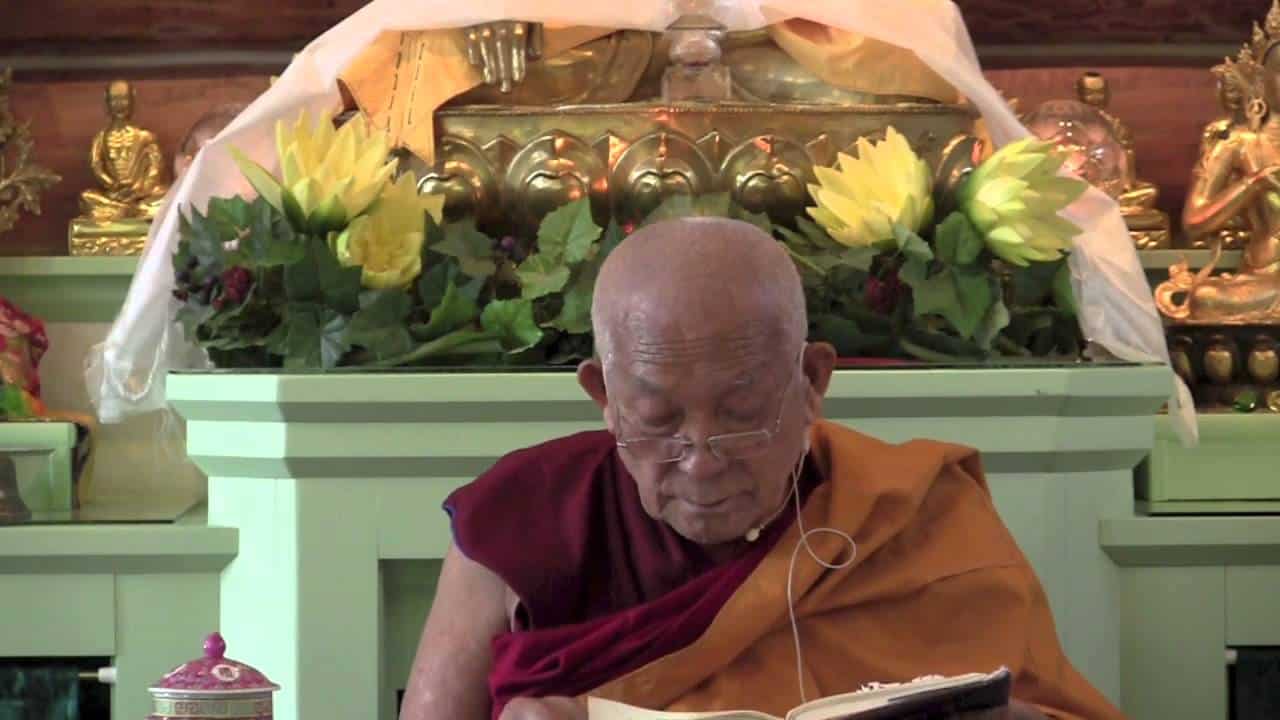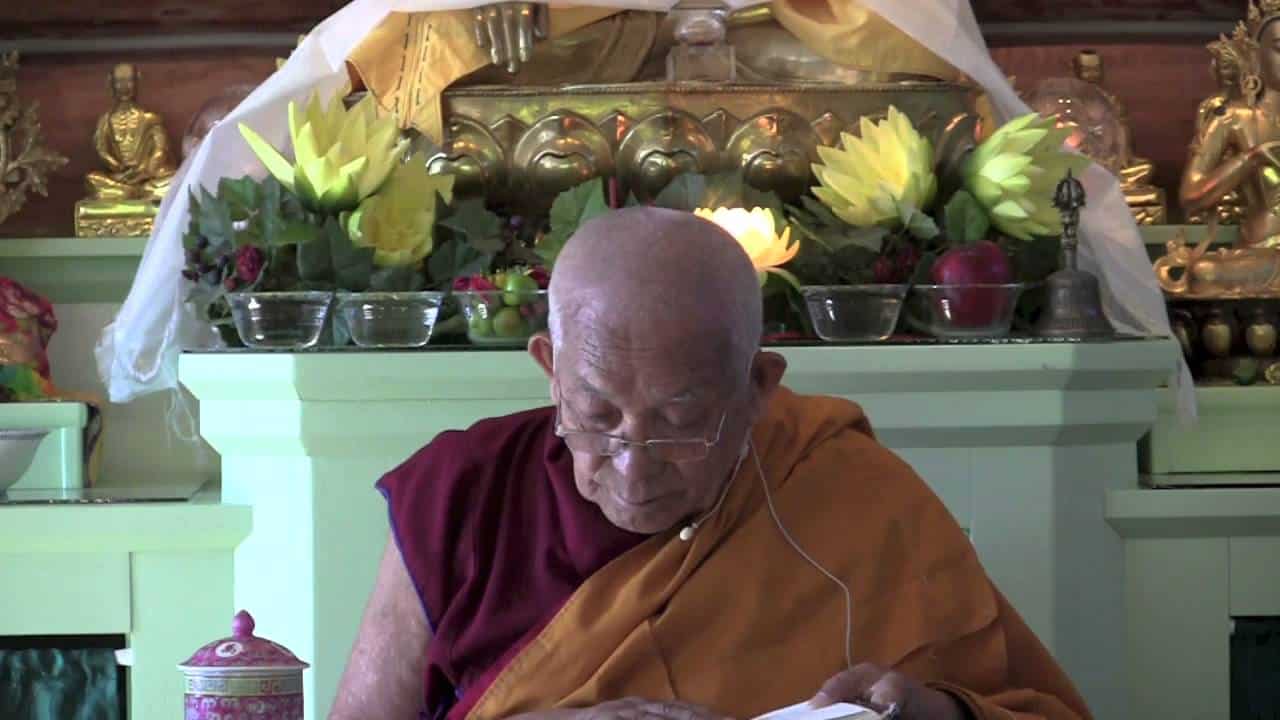Chapter 8: Verses 178-184
Part of a series of teachings on Aryadeva's 400 Stanzas on the Middle Way given on an annual basis by Geshe Yeshe Thabkhe from 2013-2017.
- Causes giving rise to disturbing emotions do not exist by their own entity but are imputed by conceptuality
- Disturbing emotions can be abandoned because we are not inherently bound to their object
- Simply entertaining the positive doubt regarding the conventional and ultimate truth “tears to tatters worldly existence”
- Advice to take an interest in the meaning of emptiness
- Showing the need to understand emptiness in order to attain liberation
- Showing the means to generate renunciation of cyclic existence
- Giving up fear of emptiness by understanding that things exist conventionally
Questions and answers
- Is Verse 136 saying that we get our first inferential understanding of emptiness by generating a multitude of experiences whereby we invalidate existence by way of a thing’s own entity?
- Who or what enables us to make the decision to engage in virtue?
Geshe Yeshe Thabkhe
Geshe Yeshe Thabkhe was born in 1930 in Lhokha, Central Tibet and became a monk at the age of 13. After completing his studies at Drepung Loseling Monastery in 1969, he was awarded Geshe Lharampa, the highest degree in the Geluk School of Tibetan Buddhism. He is an emeritus professor at the Central Institute of Higher Tibetan Studies and an eminent scholar of both Madhyamaka and Indian Buddhist studies. His works include Hindi translations of The Essence of Good Explanation of Definitive and Interpretable Meanings by Lama Tsongkhapa and Kamalasila's commentary on the Rice Seedling Sutra. His own commentary, The Rice Seedling Sutra: Buddha’s Teachings on Dependent Arising, was translated into English by Joshua and Diana Cutler and published by Wisdom Publications. Geshela has facilitated many research works, such as a complete translation of Tsongkhapa’s The Great Treatise on the Stages of the Path to Enlightenment, a major project undertaken by the Tibetan Buddhist Learning Center in New Jersey where he teaches regularly.


